The child's first right (1932)
ジャンル : ドラマ
上映時間 : 1時間 18分
演出 : Fritz Wendhausen
脚本 : Thea von Harbou
シノプシス
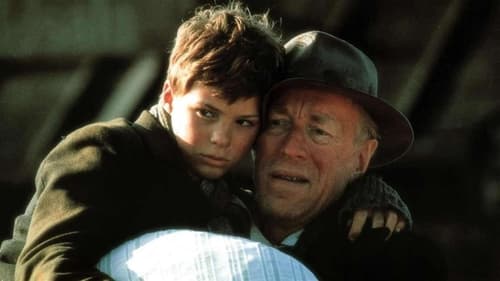
19世紀のデンマークの小島を舞台に、スウェーデンからの移民親子の可酷な体験と少年の成長を描く。製作はペア・ホルスト、マーティン・アナセン・ネクセの原作『勝利者ペレ』の〈幼年時代〉を基に、監督・脚本は本作品が日本公開第一作になるビレ・アウグスト、撮影は「マイライフ・アズ・ア・ドッグ」のヨルゲン・ペルソン、音楽はステファン・ニルソンが担当。出演はマックス・フォン・シドー、ペレ・ヴェネゴーほか。88年カンヌ映画祭グランプリ、89年アカデミー賞外国語映画賞受賞作。
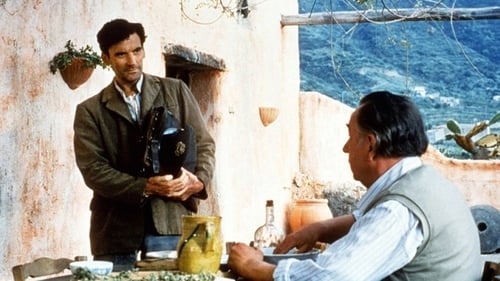
イタリア、ナポリに浮かぶ小さな島に、チリ政府に追われた世界的詩人パブロ・ネルーダが亡命し、滞在することとなった。彼だけに郵便を届ける配達人となった村の貧しい青年マリオは、ネルーダとの交流の中で、少しずつ詩の世界に触れ、恋を知るのだった。美しい風景の中で切ない愛と友情を描く感動作。
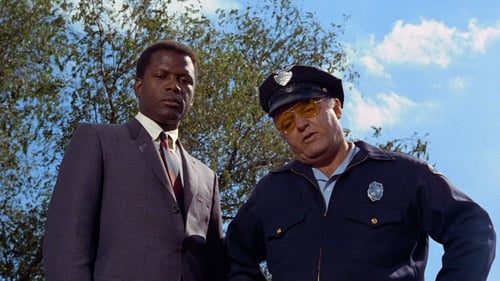
南部で発生した殺人事件の容疑者として、駅で列車を待っていた黒人青年ヴァージルの身柄が拘束された。しかし警察の取り調べによって、ヴァージルは殺人課の刑事であることが判明する。警察署長のビルは、ヴァージルに反感を覚えながらも、協力して捜査を進めていくが……。
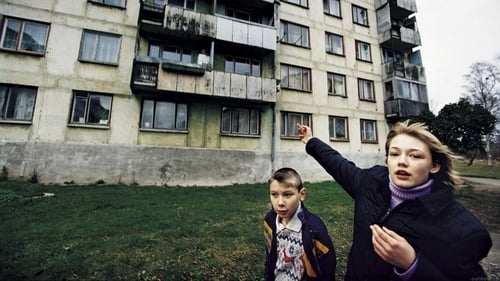
Lilja lives in poverty and dreams of a better life. Her mother moves to the United States and abandons her to her aunt, who neglects her. Lilja hangs out with her friends, Natasha and Volodya, who is suicidal. Desperate for money, she starts working as a prostitute, and later meets Andrei. He offers her a good job in Sweden, but when Lilja arrives her life quickly enters a downward spiral.

逆境の中にあってもたくましく生きていく女性の姿を、「イゴールの約束」のダルデンヌ兄弟が描いた作品。キャンプ場のトレーラーハウスで酒浸りの母と暮らす少女ロゼッタ。ある日、彼女は理由もなく職場をクビになってしまう。ロゼッタは厳しい社会の現実にぶつかりながらも必死で新しい仕事を探しつづけるのだが……。99年のカンヌ映画祭でパルムドールと主演女優賞を受賞。
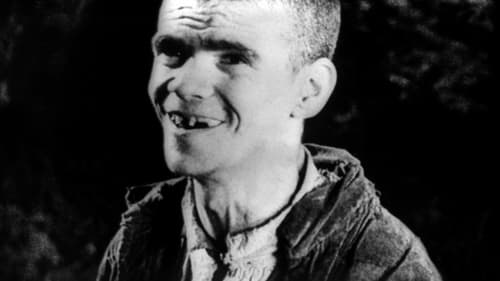
An exploration —manipulated and staged— of life in Las Hurdes, in the province of Cáceres, in Extremadura, Spain, as it was in 1932. Insalubrity, misery and lack of opportunities provoke the emigration of young people and the solitude of those who remain in the desolation of one of the poorest and least developed Spanish regions at that time. (Silent short, voiced in 1937 and 1996.)

Three teenagers with troubled families are unable to adjust at home and in high-school. Tempted with an easy, carefree life they soon pass from misdemeanors into serious crime - and will suffer for it. Sometimes, repentance comes too late.

In the mountains of Northern Thailand lies a boarding school. The students come from different tribes in the area and live together with their Thai teacher, grow their own crops and cook their own meals while continuing their education. The biggest question on their mind, having spent all their lives in the mountainside, is where the rivers running down the hills end. If they pass the final exams their reward is a trip to the end of the river, to the ocean itself. The children are poor, some orphans, and most of them only speak their tribe's language, but all try their best to pass the exams to be able to take the long-awaited trip. This trip is not only a journey from the children's villages to the ocean but also a journey that symbolizes the change from childhood to adulthood.

A gynecologist attempts to rid the world of sexual problems by separating sex on the one hand and reproduction, which he feels should be left to artificial wombs.

DREAMING NICARAGUA is a film about HOPE. It's about love for the dignity and courage of the human spirit that, even immersed in uttermost tragic conditions, fights for a better life, and in this case, with a friendly SMILE. DREAMING is a sensitive and lyrical portrayal of four children living in extreme poverty in Nicaragua. The film takes us beyond their hardships and gives voice to the youngsters, who are surprisingly funny, hopeful, and optimistic. A traveling art teacher provides a safe arena for our four unlikely protagonists to express their innermost thoughts. When painting, the kids momentarily escape the stresses of their reality into a world of dreams and ideas, a stark contrast to their lives outside: a vicious cycle of hunger, child labor, and violence. Despite the extreme circumstances, the children and their families face their lives with an inspiring unity, strength and humor.

During the last half-century, Cambodia has witnessed genocide, decades of war and the collapse of social order. Now, documentary filmmaker Rithy Panh looks at an irreparable tragedy that is less visible, yet no less pervasive: the spiritual death that results when young women are forced into prostitution. Angry and impassioned, PAPER CANNOT WRAP UP EMBERS presents the searing stories of poor Asian women whose lives were violated and their destinies destroyed when their bodies were turned into items of sexual commerce.

The poor may always have been with us, but attitudes towards them have changed. Beginning in the Neolithic Age, Ben Lewis's film takes us through the changing world of poverty. You go to sleep, you dream, you become poor through the ages. And when you awake, what can you say about poverty now? There are still very poor people, to be sure, but the new poverty has more to do with inequality...

The movie consists of three episodes that explore the lives of poor and desperate in Iran. In episode one, a very poor couple with many crippled children abandon their newly born baby in hopes that it will have a better future. In the second episode, a mentally impaired and isolated young man tries to take care of his senile mother who is almost dead. In the third episode, a cowardly and desperate peddler tries to escape from his boss.
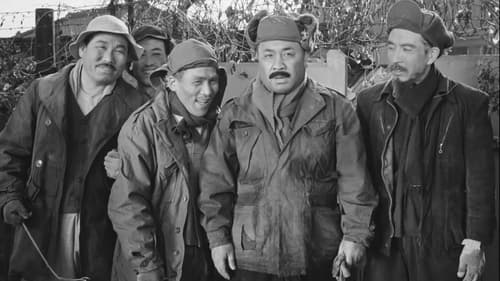
A man tries to raise his two sons and two daughters under some of the most adverse conditions known to man. The father operates a horse-drawn cart, but in a city that is modernizing after the destruction of the Korean War, automobiles are making carts obsolete. The children are experiencing difficulties as well. The eldest son has flunked the bar exam twice and is not hopeful of passing it a third time to become a lawyer. The eldest daughter is mute and married to an abusive husband. The younger daughter tries to pose as a rich university student to move up in life. The youngest son has a penchant for petty theft.
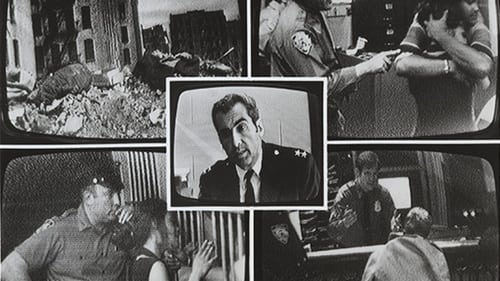
The Police Tapes is a 1977 documentary about a New York City police precinct in the South Bronx. The original ran ninety minutes and was produced for public television; a one-hour version later aired on ABC. Filmmakers Alan and Susan Raymond spent three months in 1976 riding along with patrol officers in the 44th Precinct of the South Bronx, which had the highest crime rate in New York City at that time. They produced about 40 hours of videotape that they edited into a 90-minute documentary.

Drama based on a play by Friedrich Wolf. Hete is pregnant, hoping to have soon a family with her fiancé Paul. When the factory, where she and Paul work, sacks all striking workers, she tries to find a legal way for abortion. But there is only the illegal option - the eponymous cyanide.

Gardoni, a down-on-his-luck vaudeville performer, is taken in by a fellow performer, a clown who has a bicycle riding act. Gardoni shows his appreciation by stealing the clown's act and his girlfriend, whom he marries.

Using an embedded Iraqi camera crew, AFI has delivered an unprecedented look at life inside post-war Iraq, all from the unique perspective of a precocious twelve-year-old boy. Doe-eyed and adorable Kheer Allah lives with his mother, father, two brothers and sister. Their "home" has no furniture and no modern appliances, except for an old television and radio sitting precariously atop a stack of used tires. There's no meat on this family's table. Home-baked pita bread is the staple in this beyond-poor household. School is out of the question too. Young Kheer Allah must work every day to help his family survive. This daily struggle forms the heart of this remarkable film. Through the wind-swept and war-ravaged streets of his neighborhood, Kheer Allah parlays his abundant charm into a variety of odd jobs that bring little money, but much satisfaction to his ever-smiling face.

The film tells the story of a young man who dreams of securing high jobs by completing his doctorate, but is forced to spend his days in a pig farm.

In the drought areas of Northeastern of Brazil, groups of migrants move trying to find better place to live, at least with water. Some of them go to Recife, to get a vessel to Santos expecting to have a better life in the Southern. In the poor area of Recife, an old washerwoman launders clothes to survive and support her family. Her husband Zé Luis, a former sailor, is crazy due to a hit of the boom of a mast on his head. Her older son Raimundo works in a grocery and selling mangoes on the street, trying to save money to move to the Southeastern with his girl-friend Aurora. Her daughter wants to be a prostitute to have a better quality of life. Her younger son is seriously sick.



















